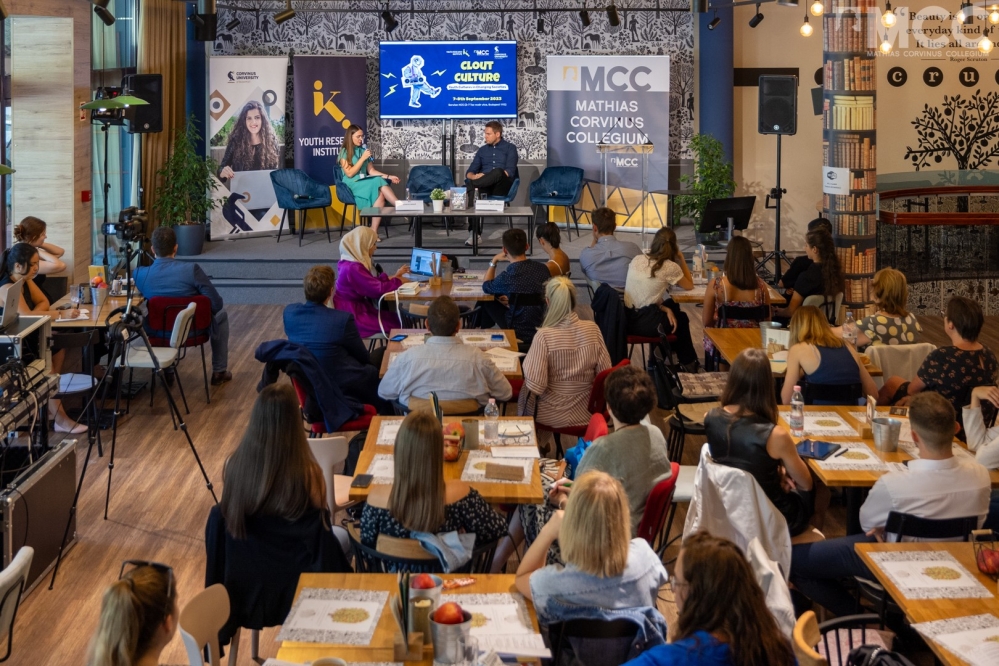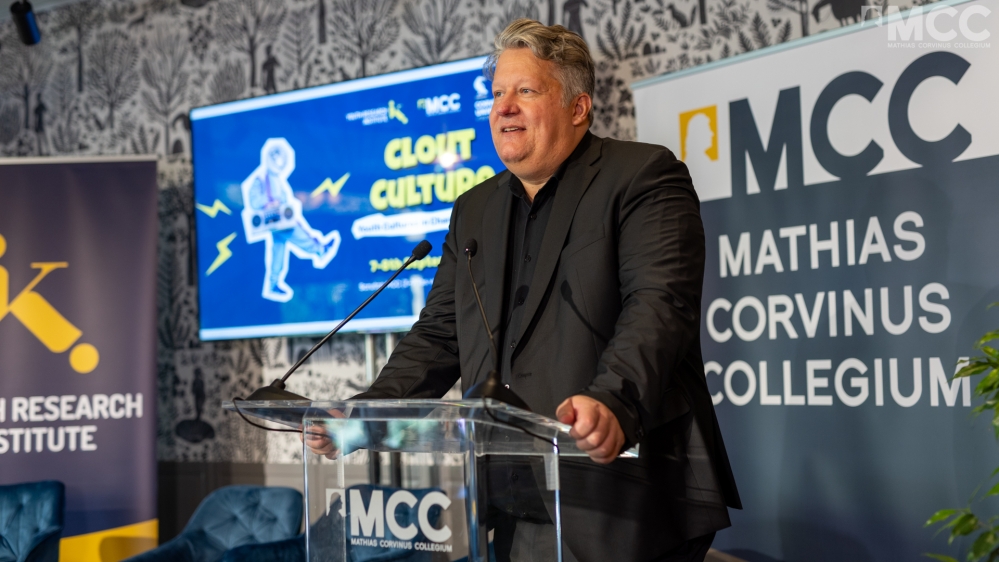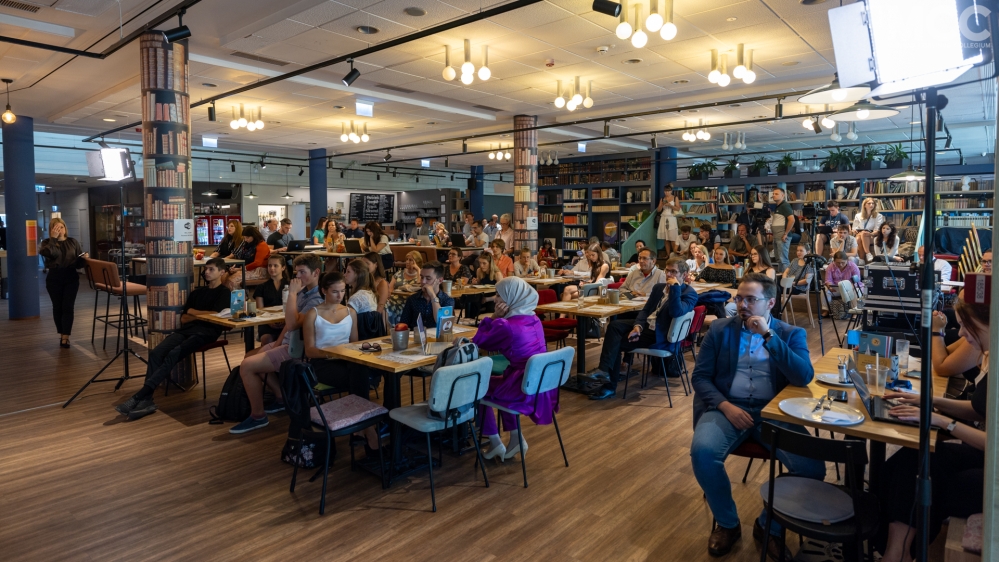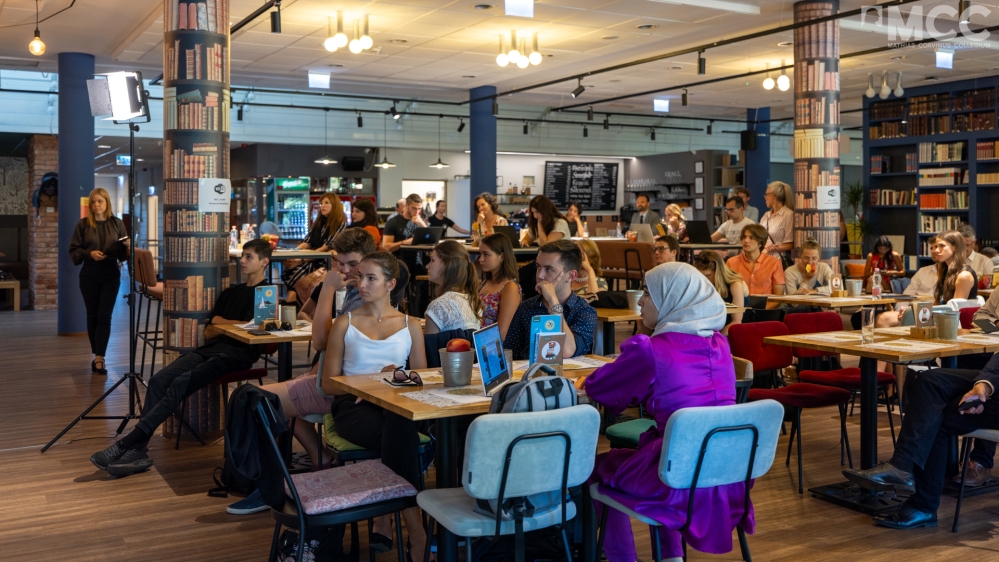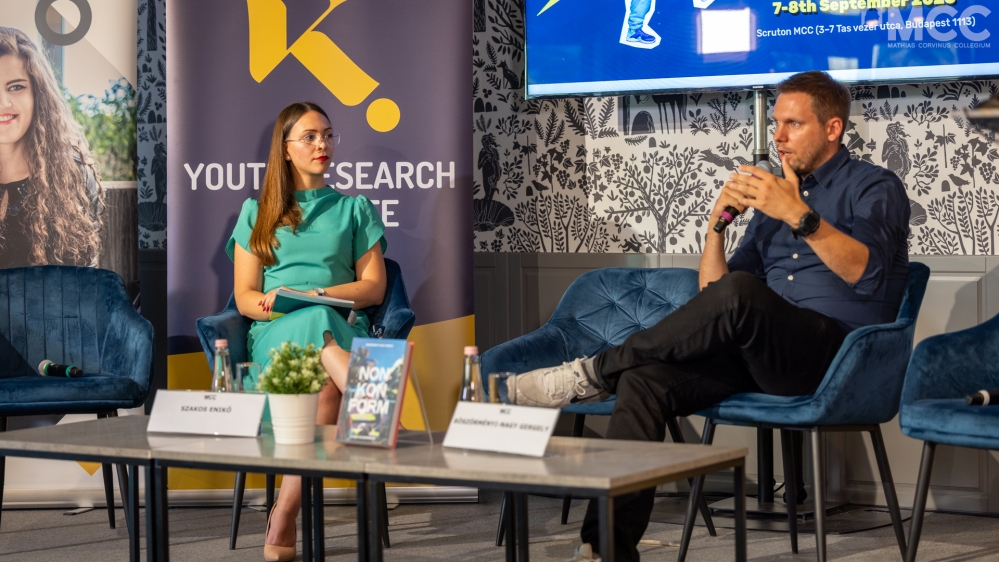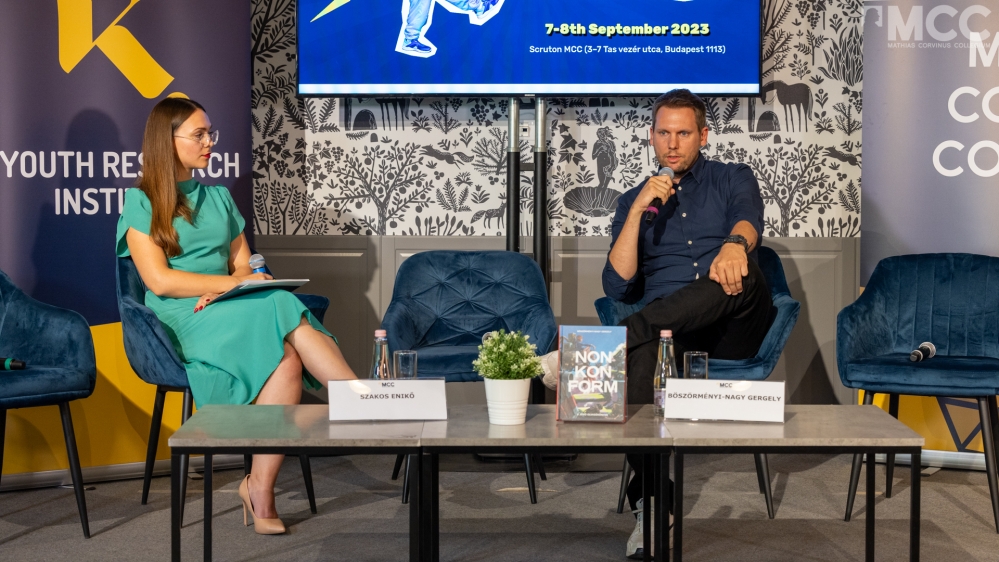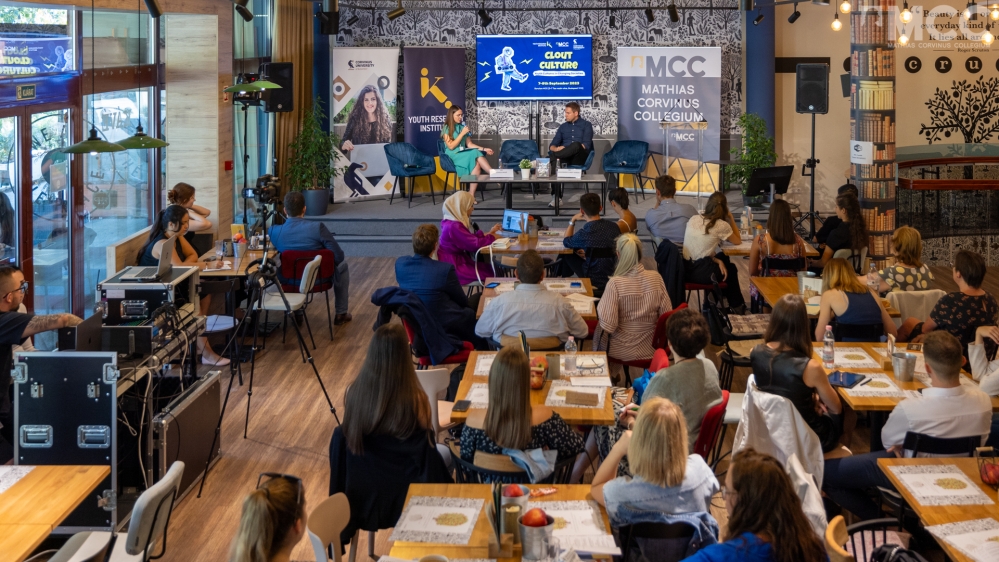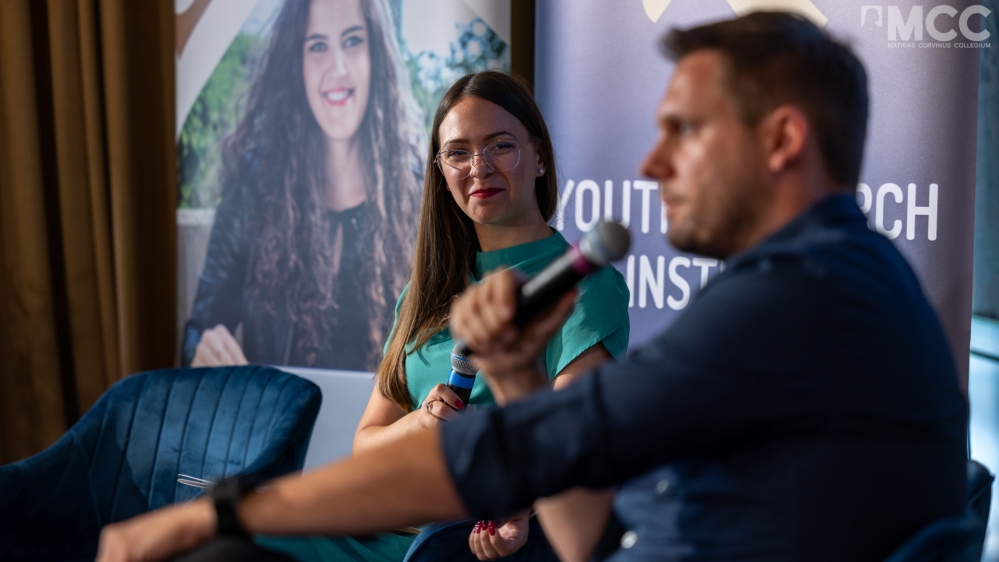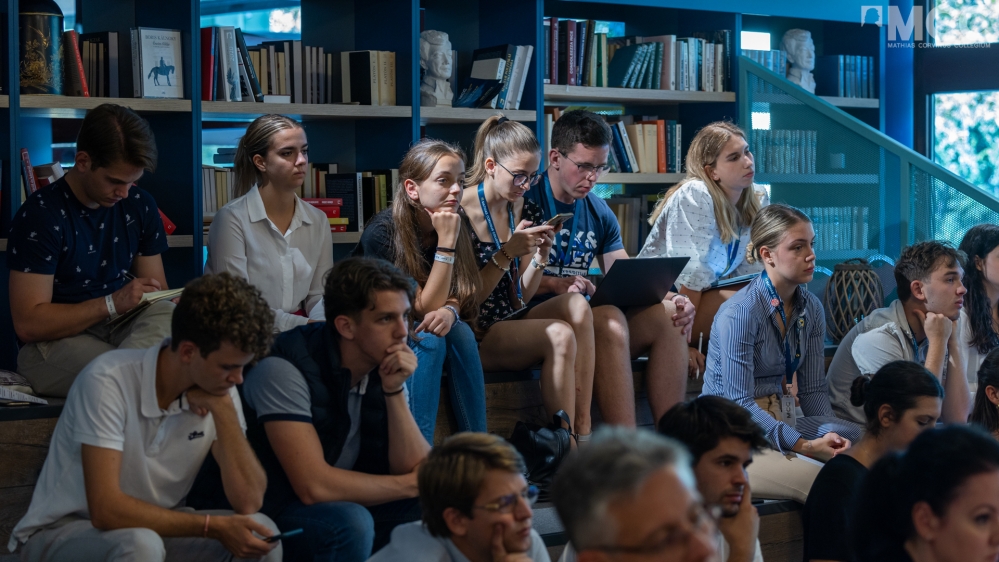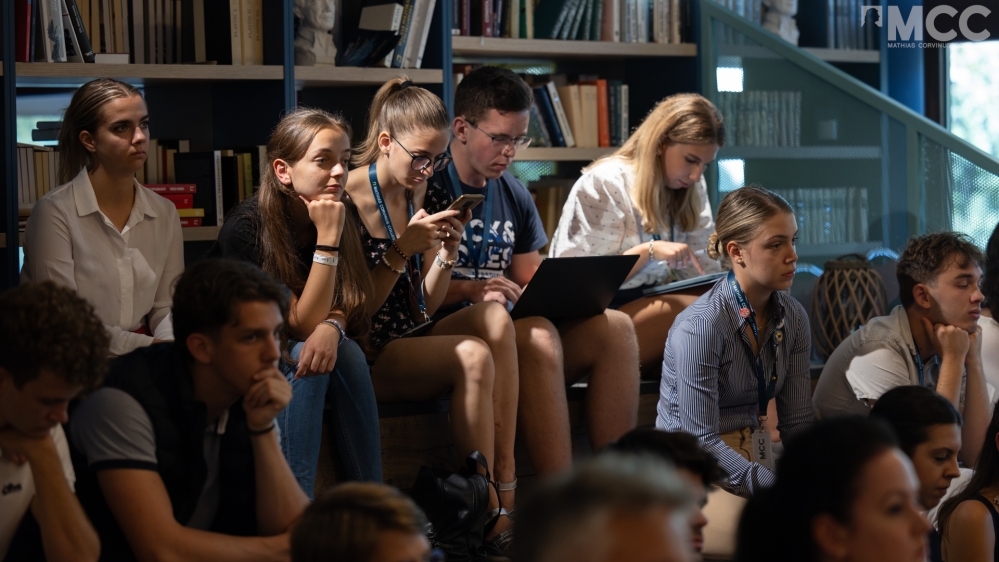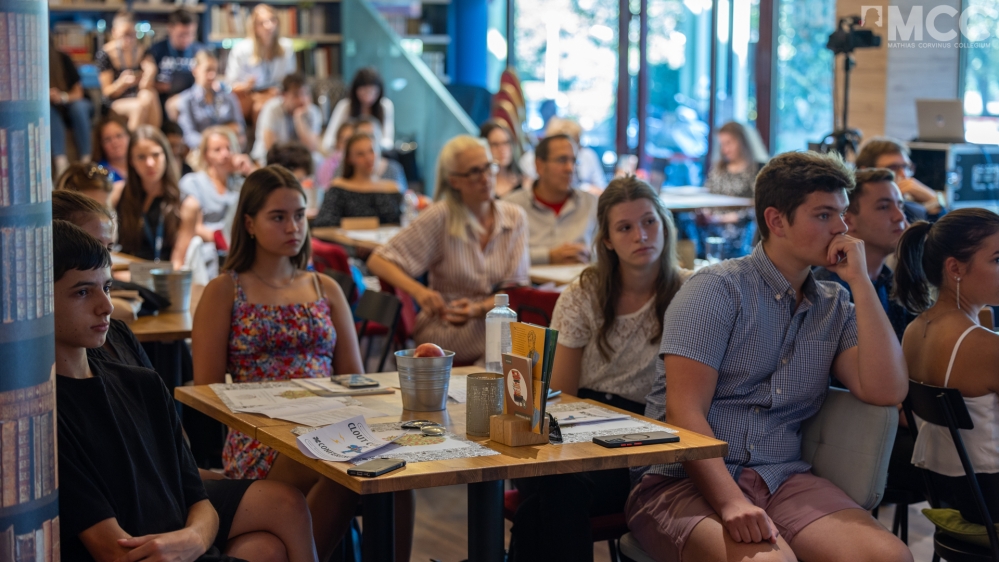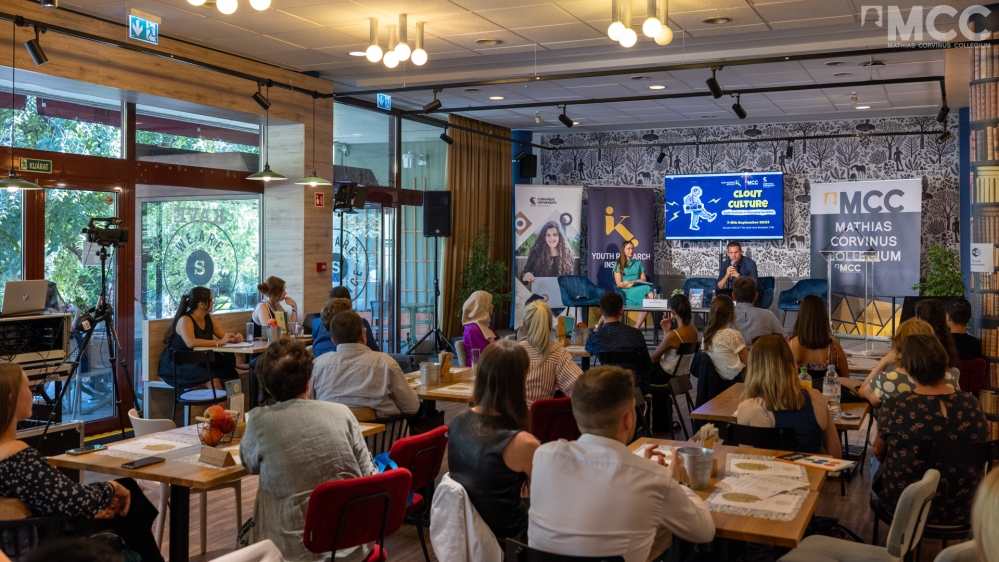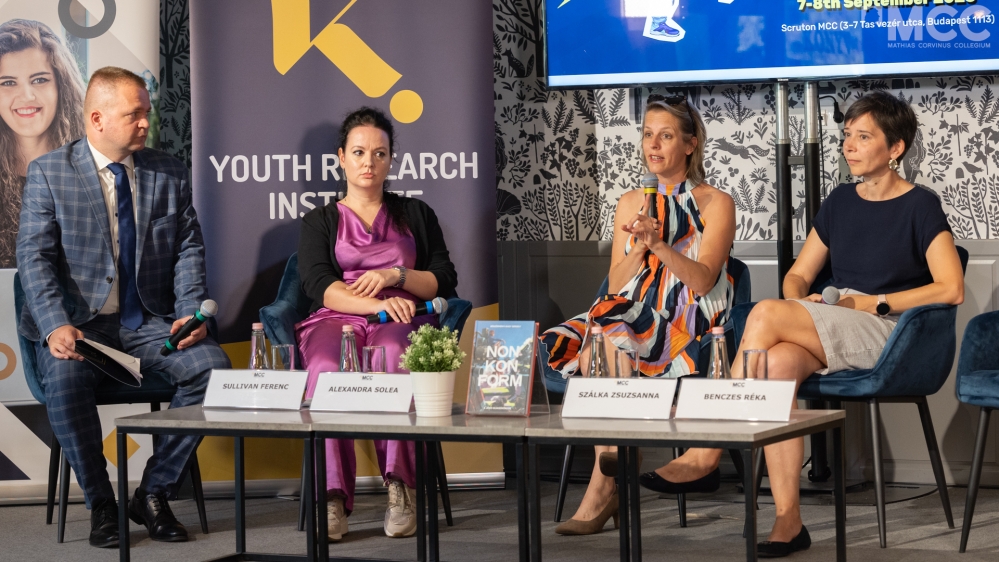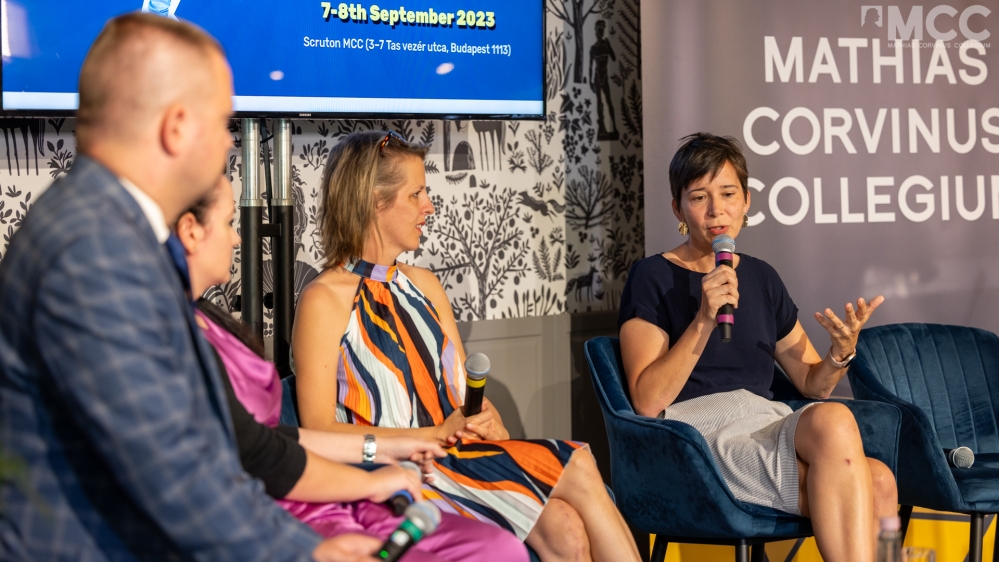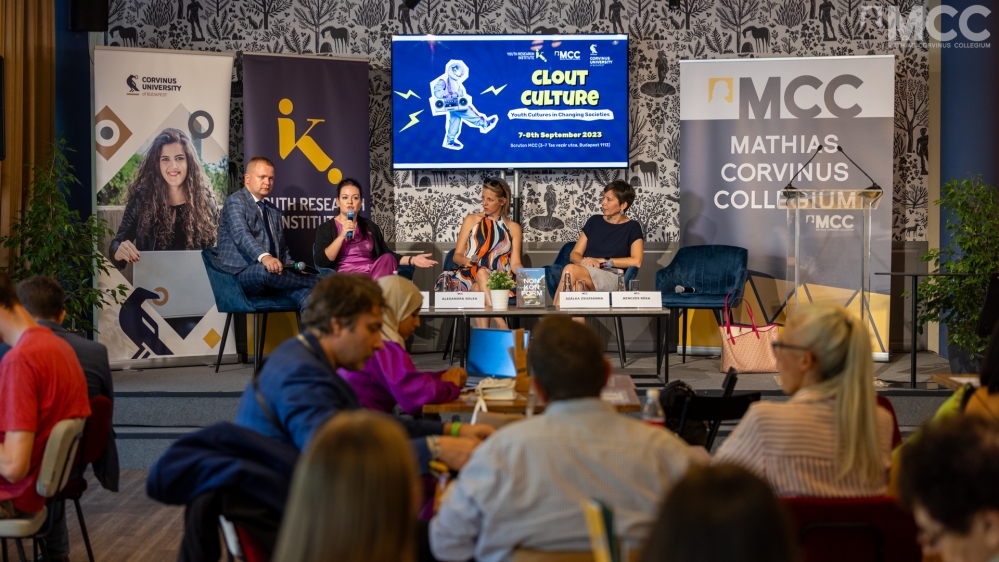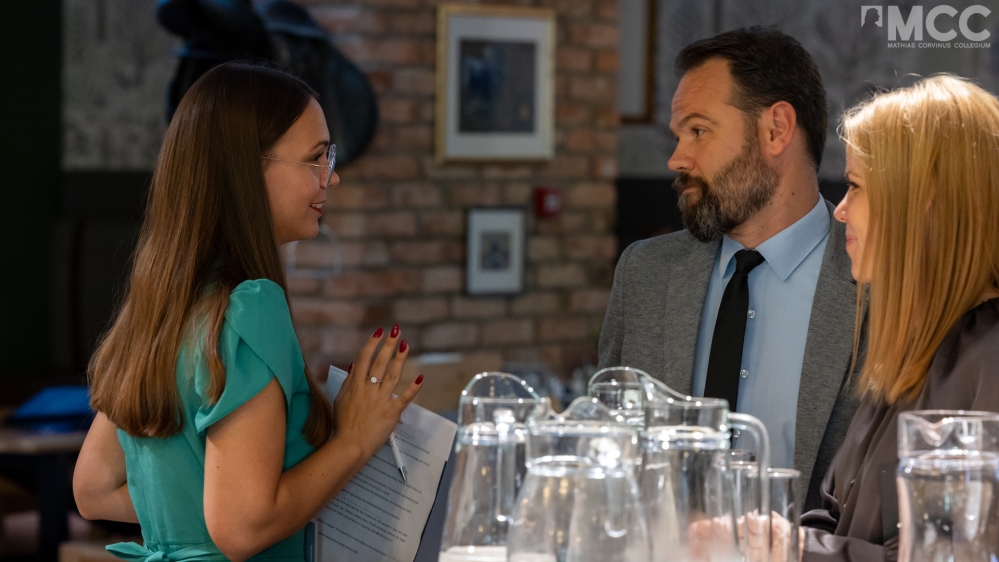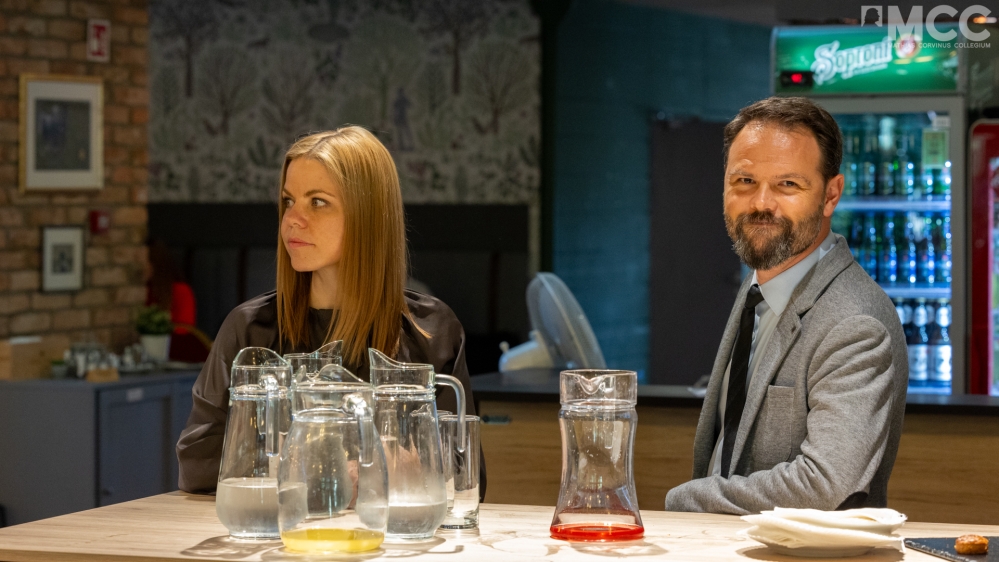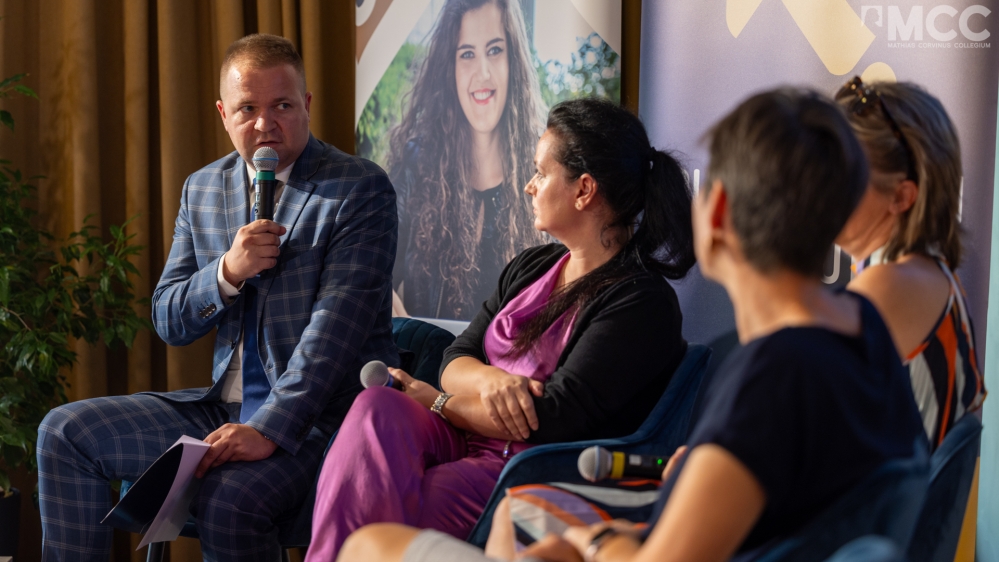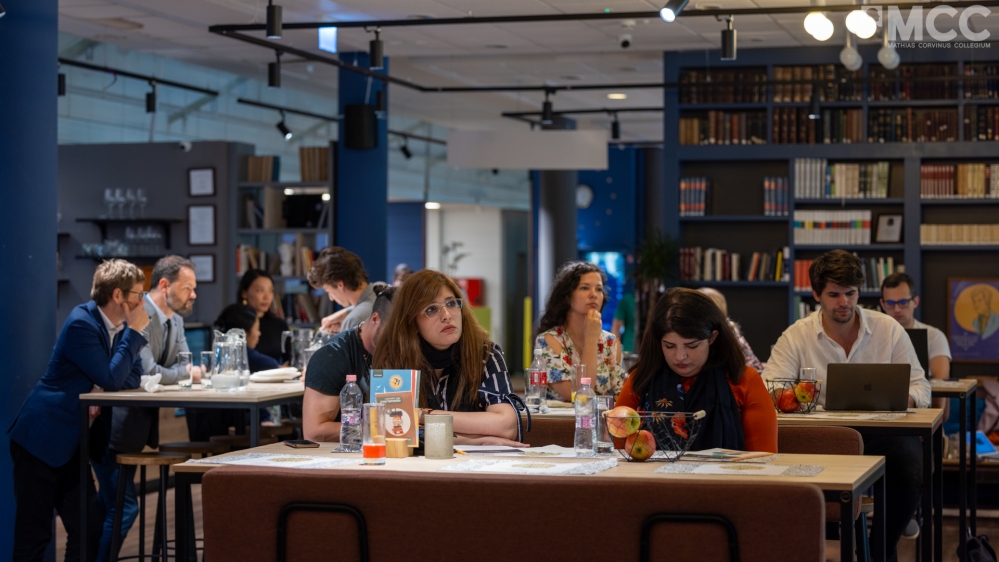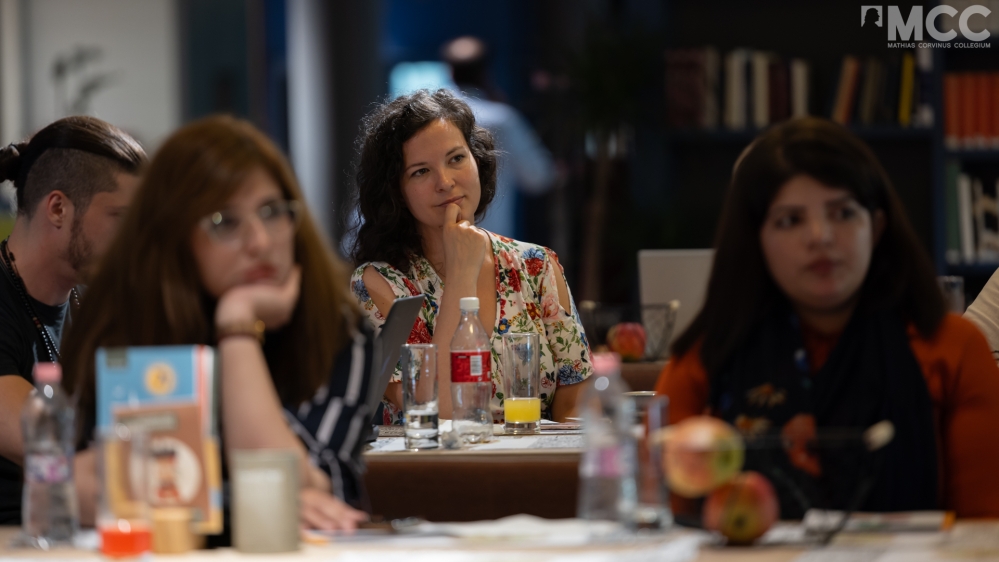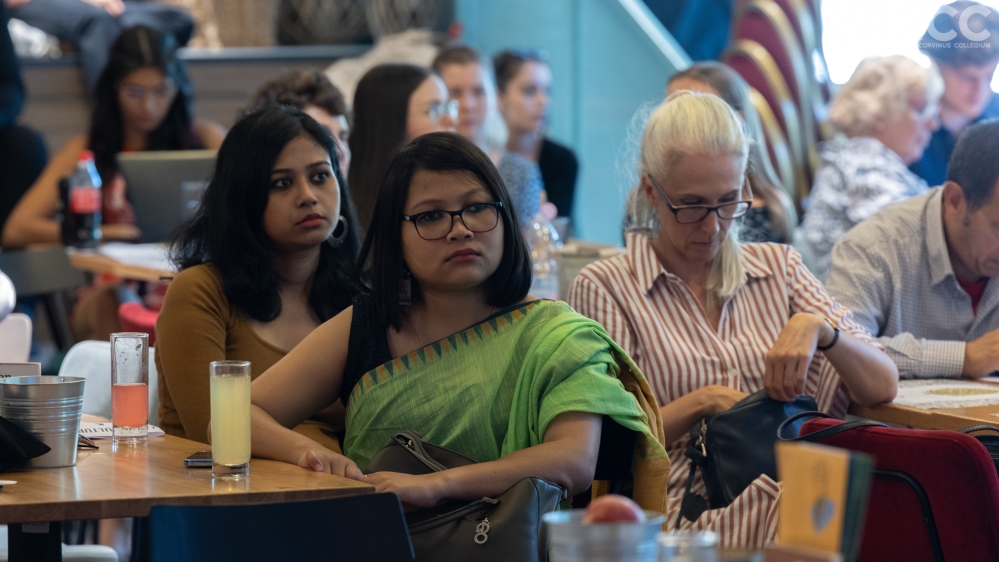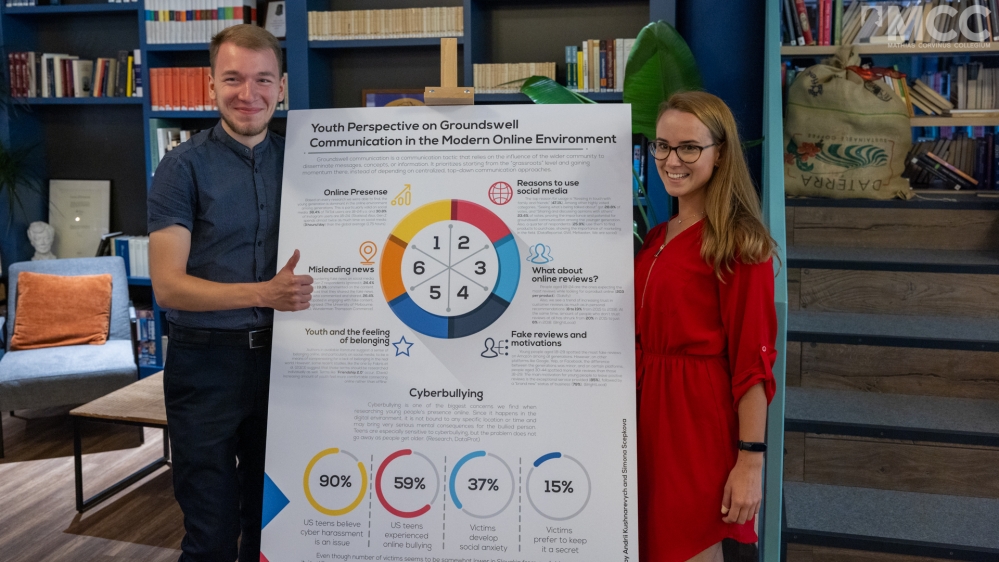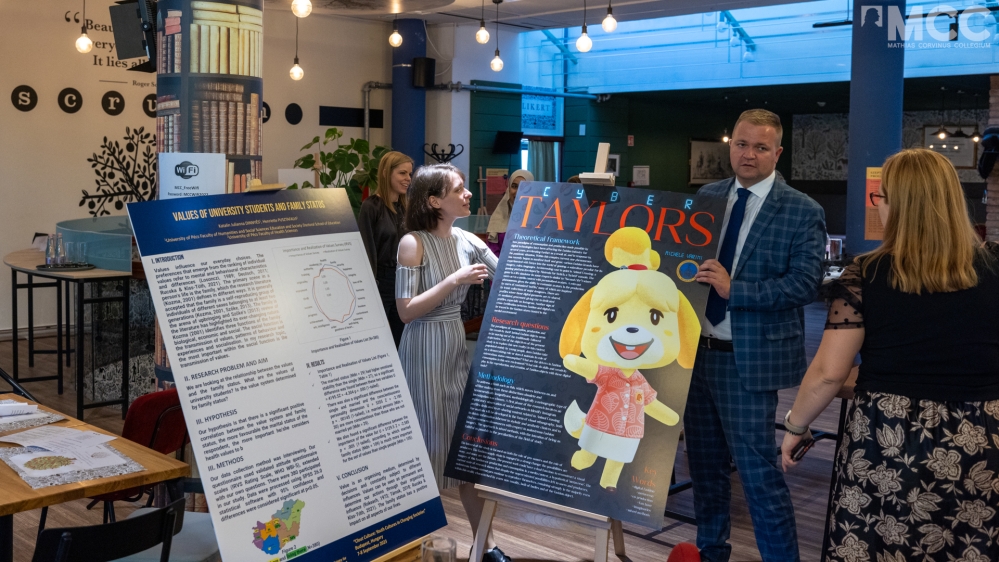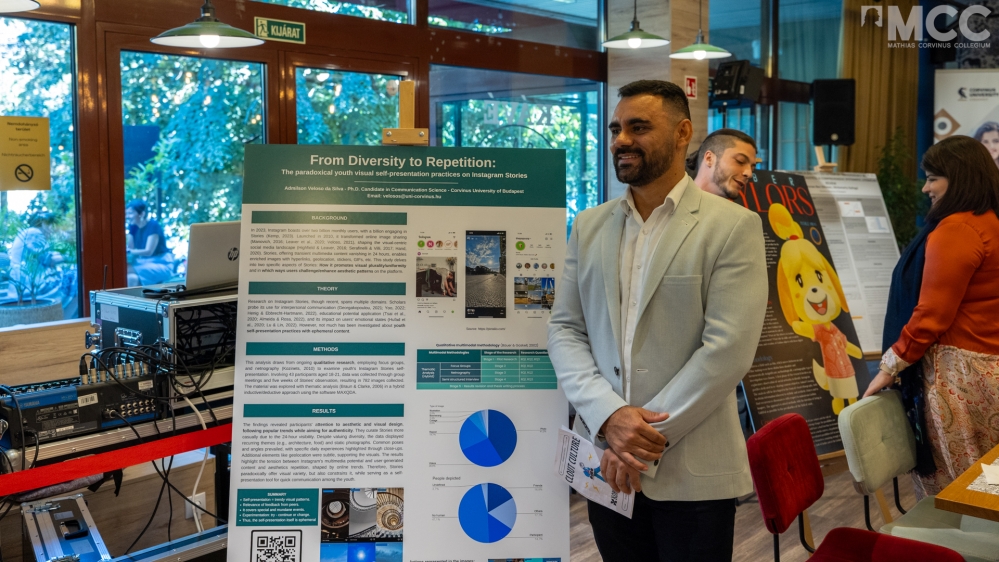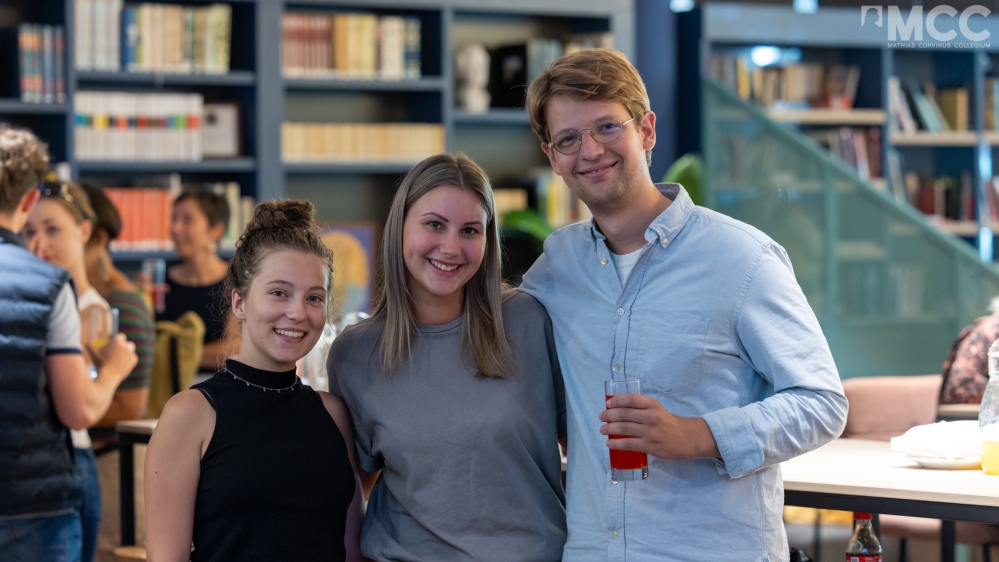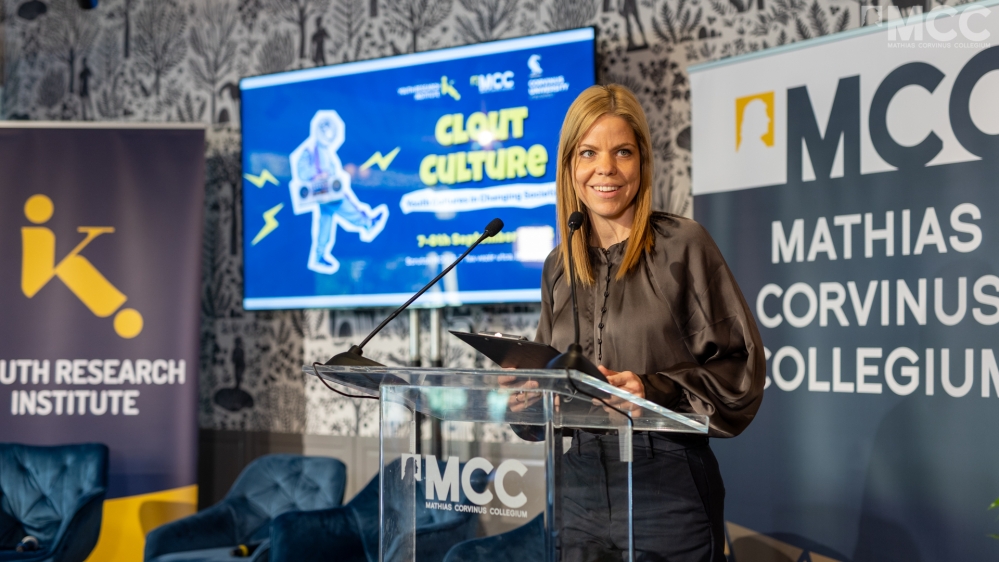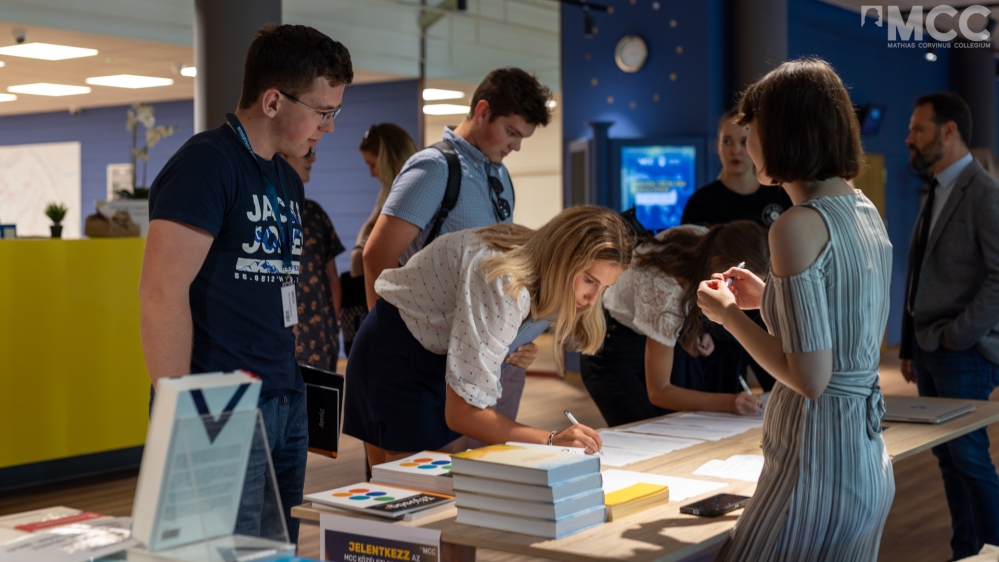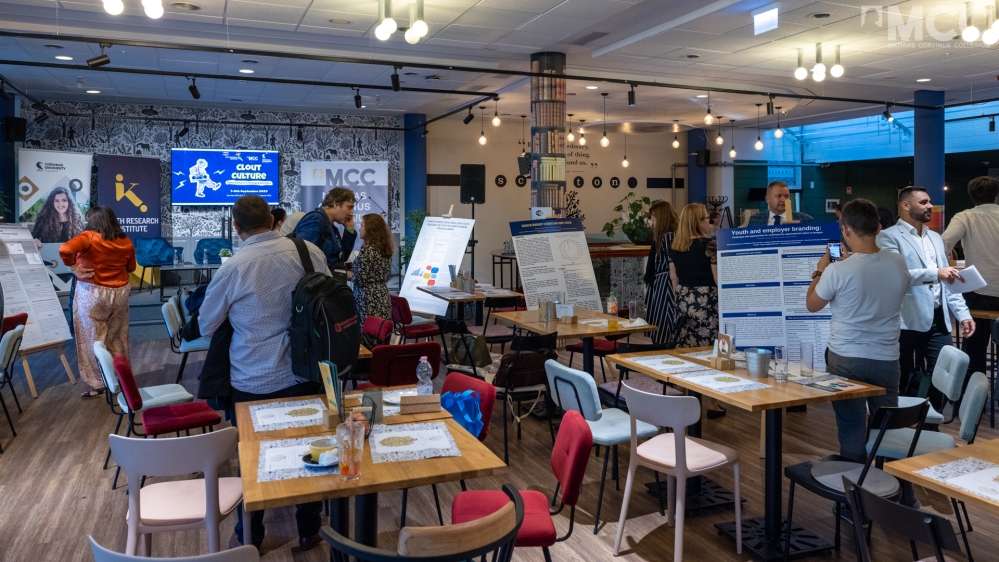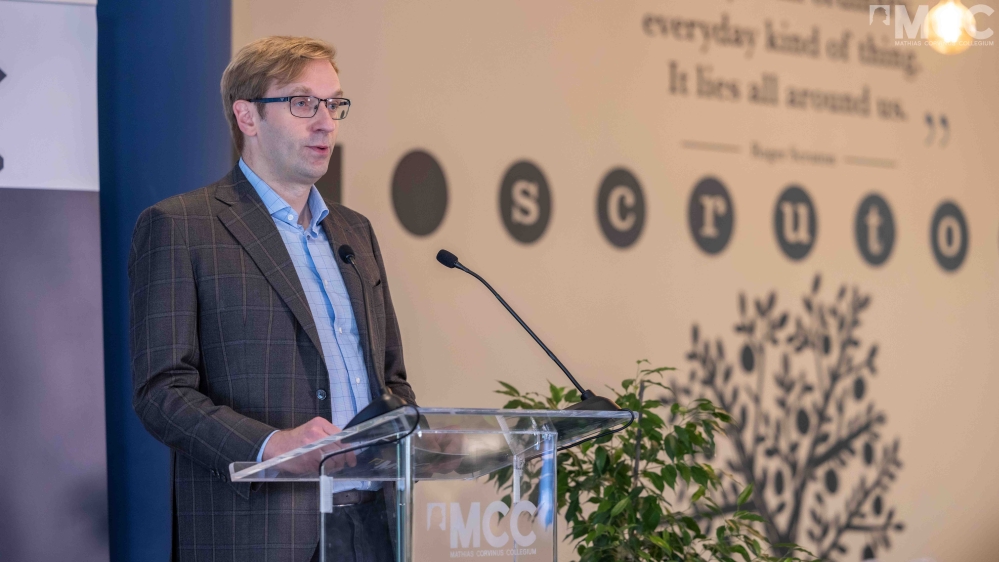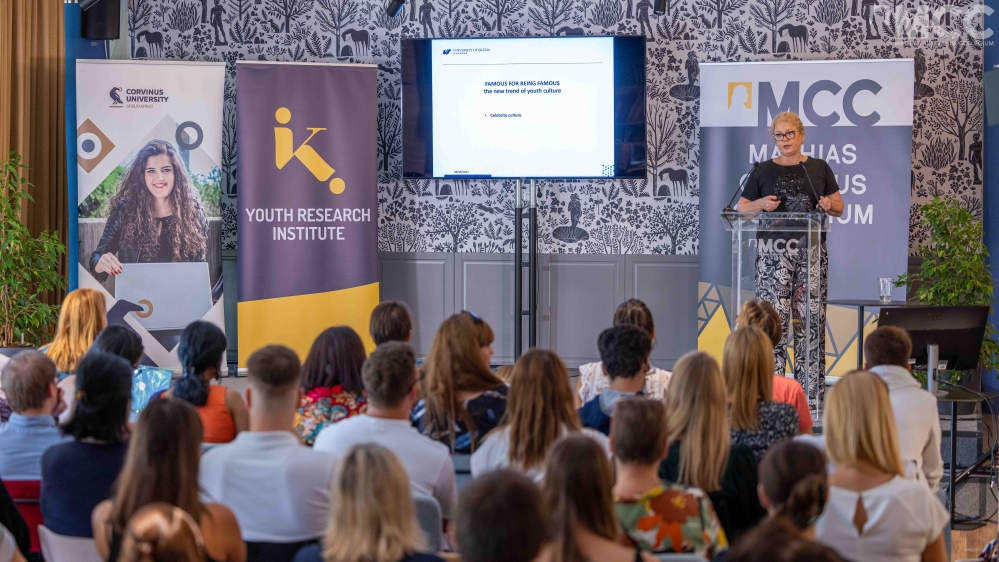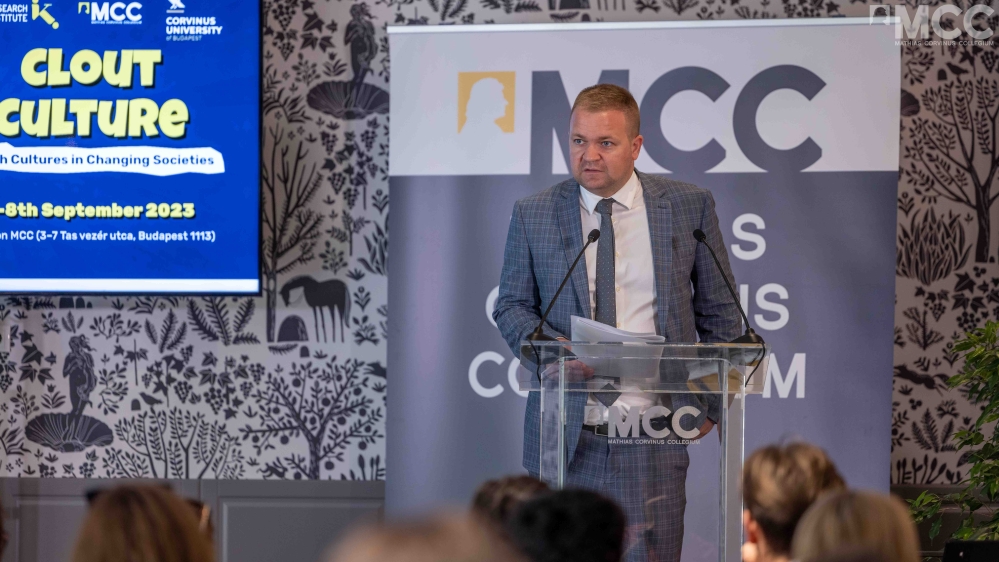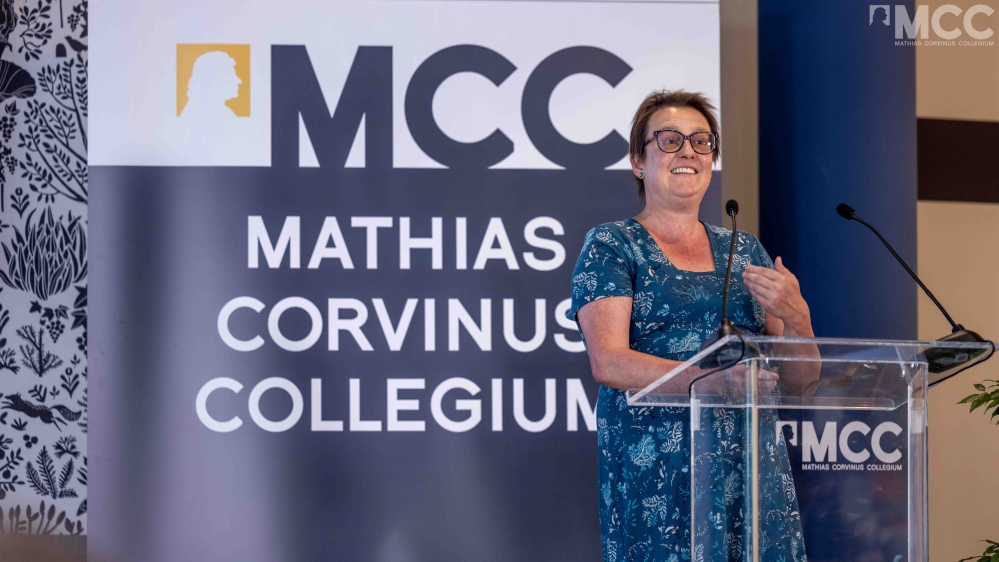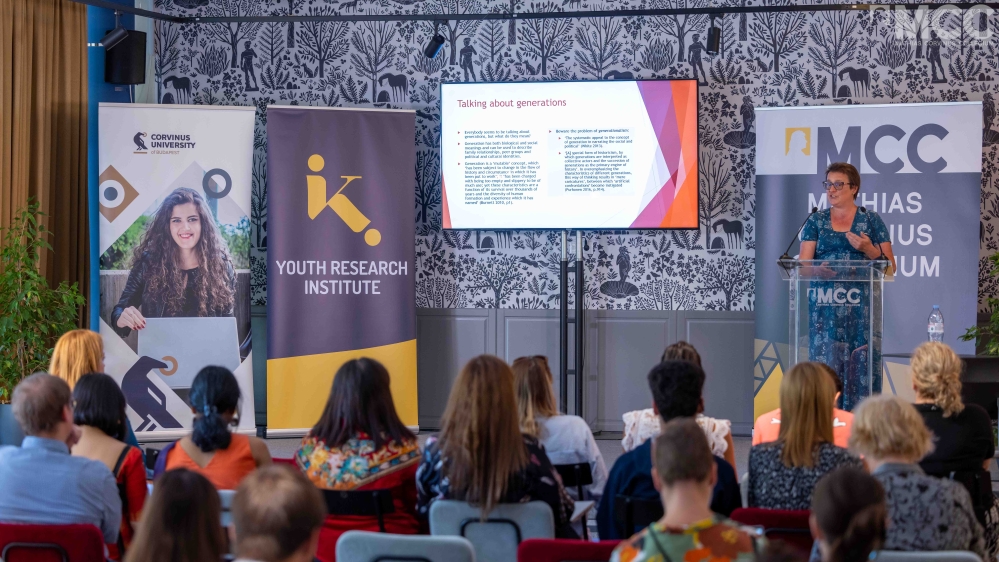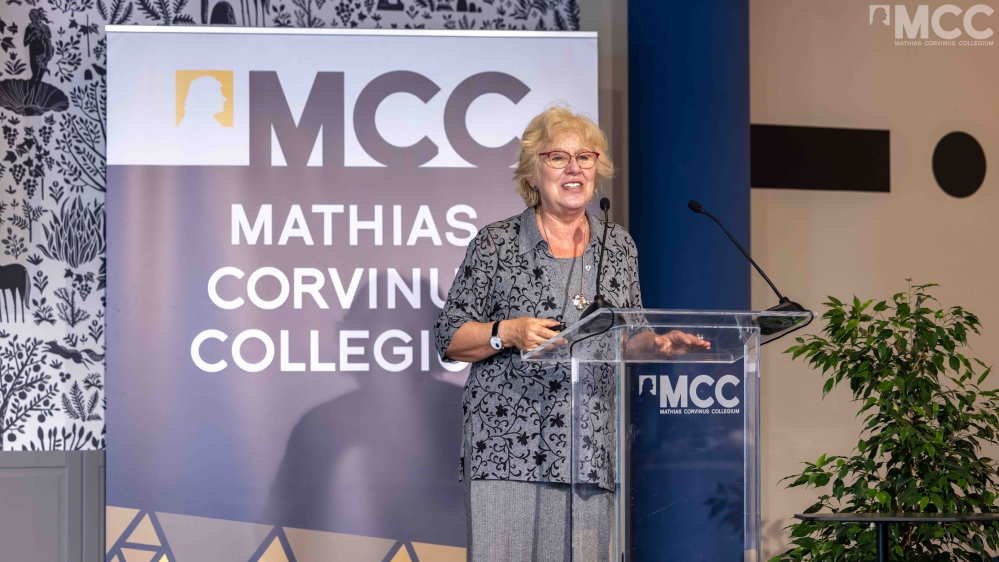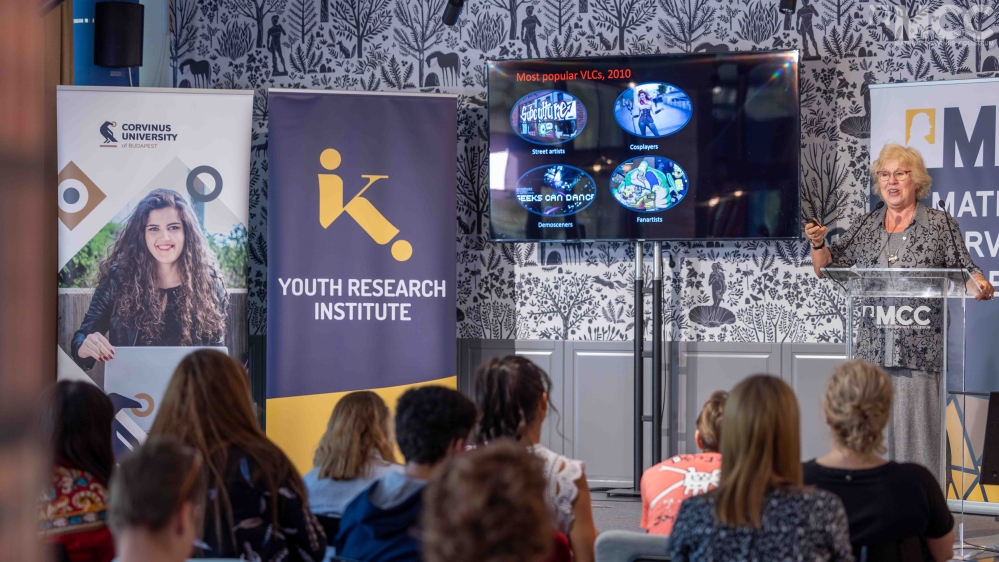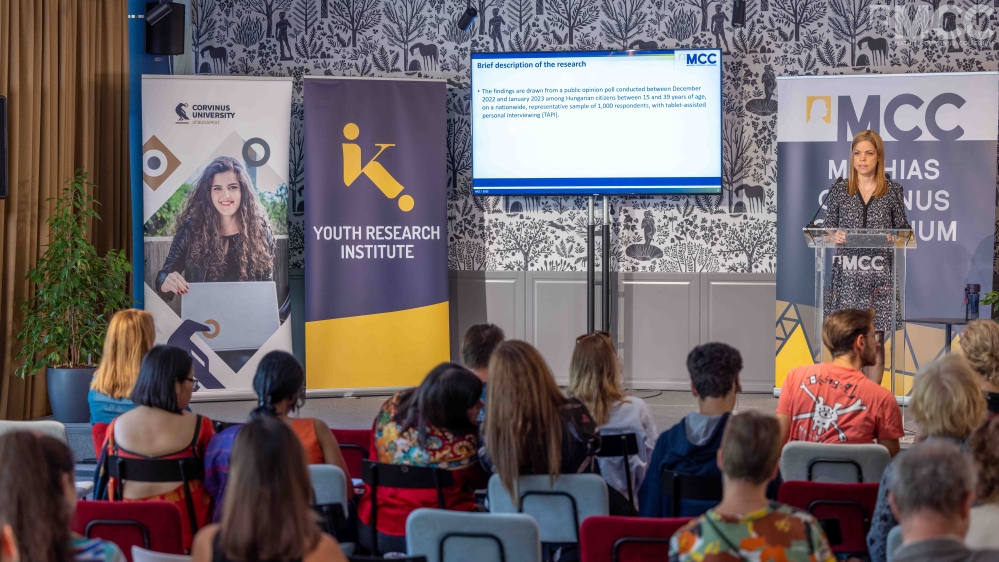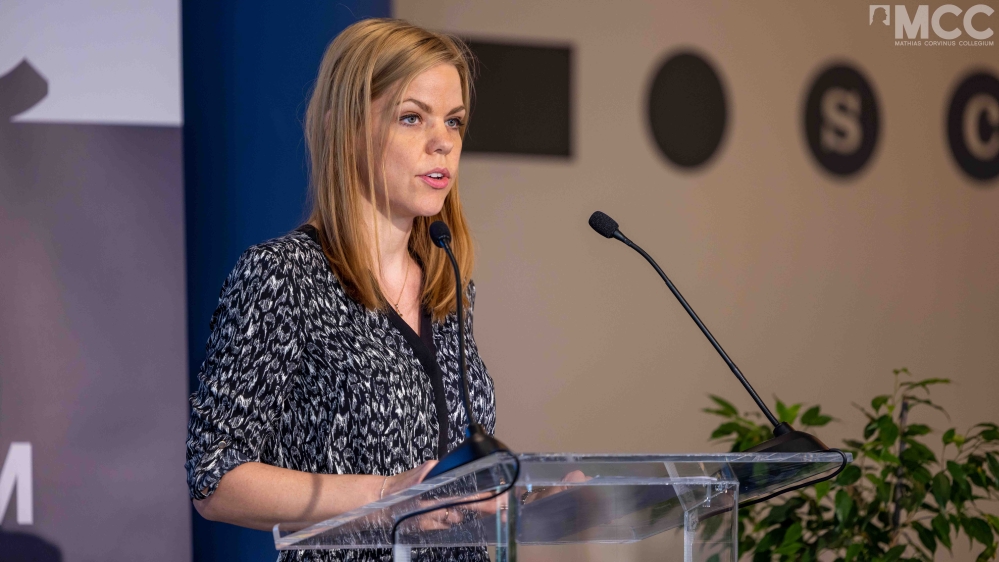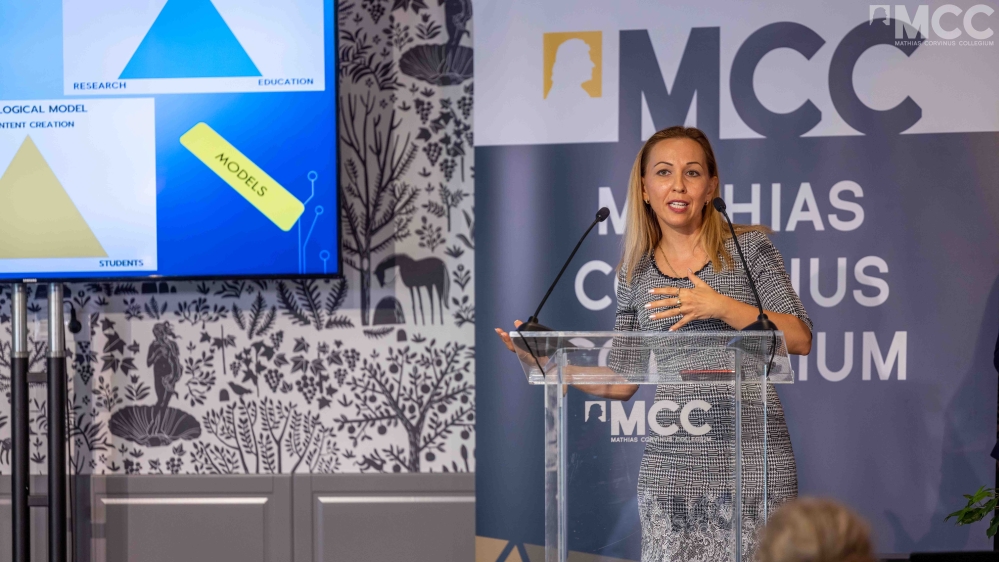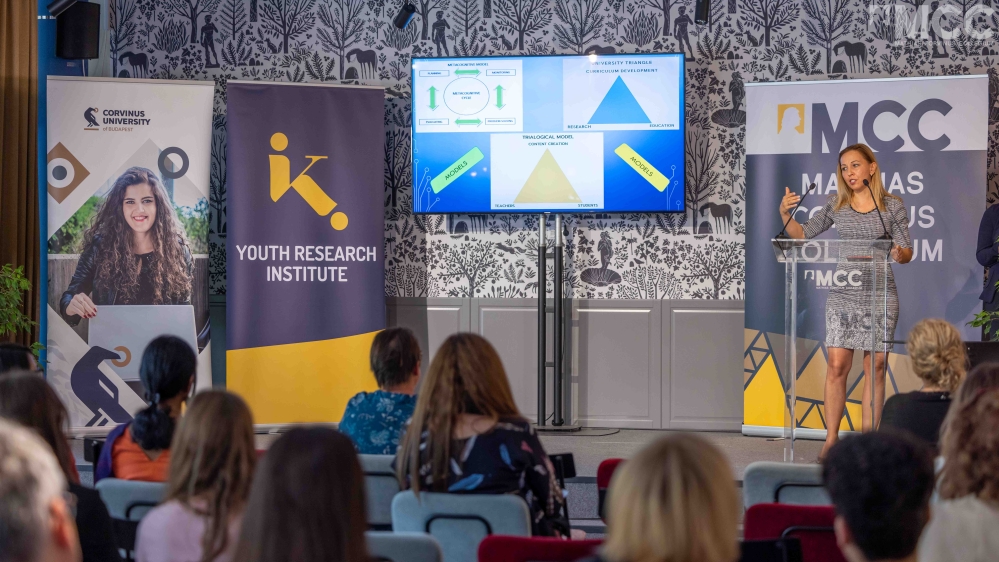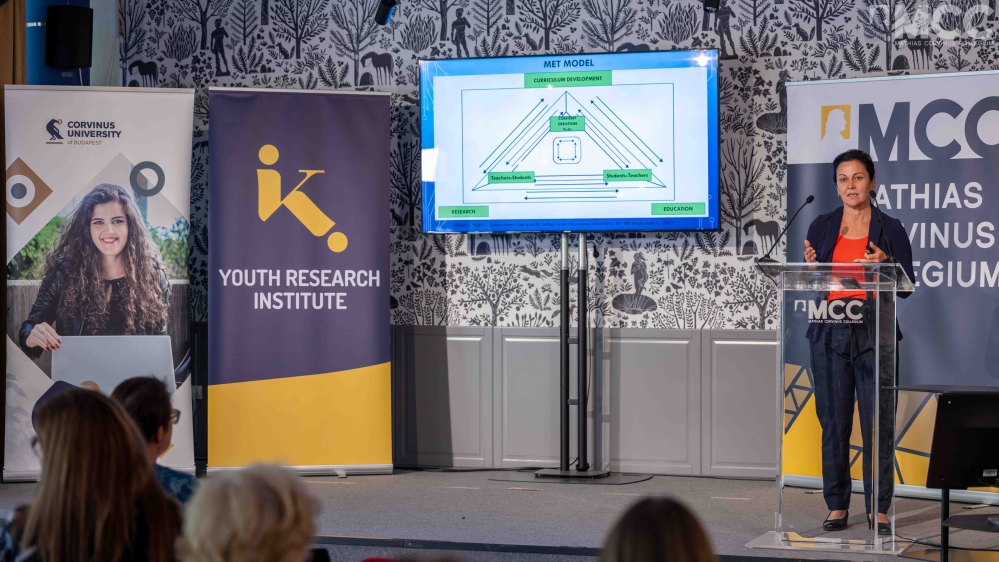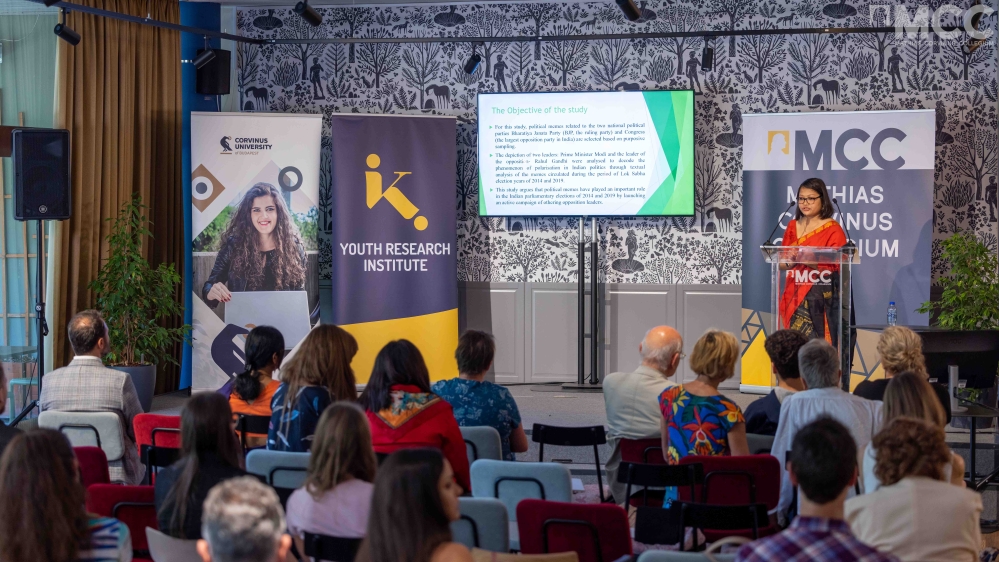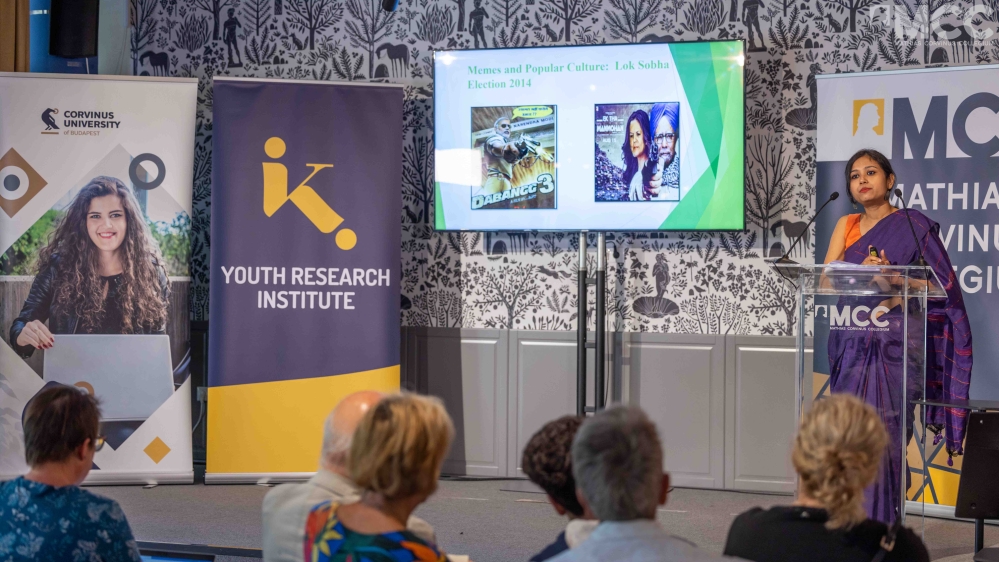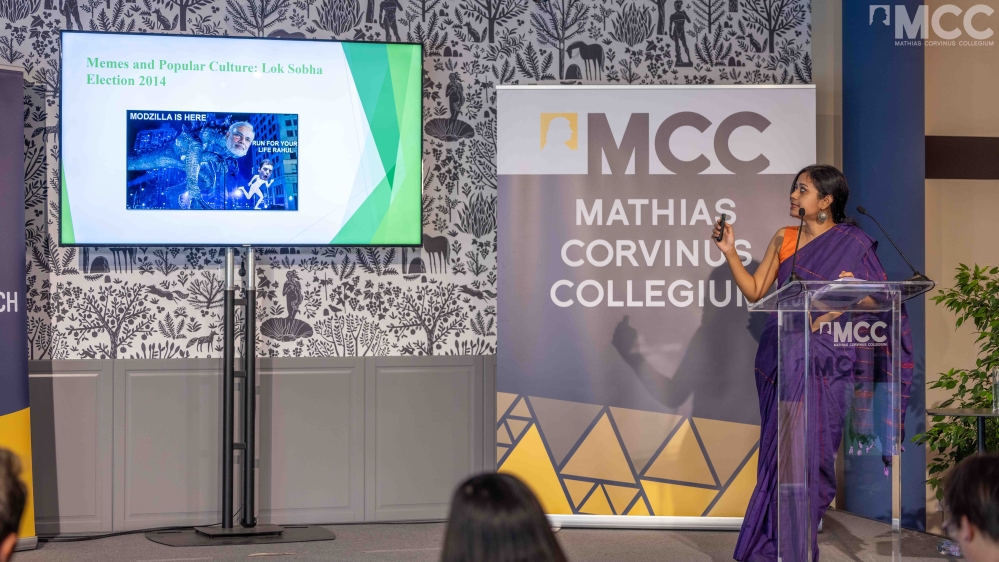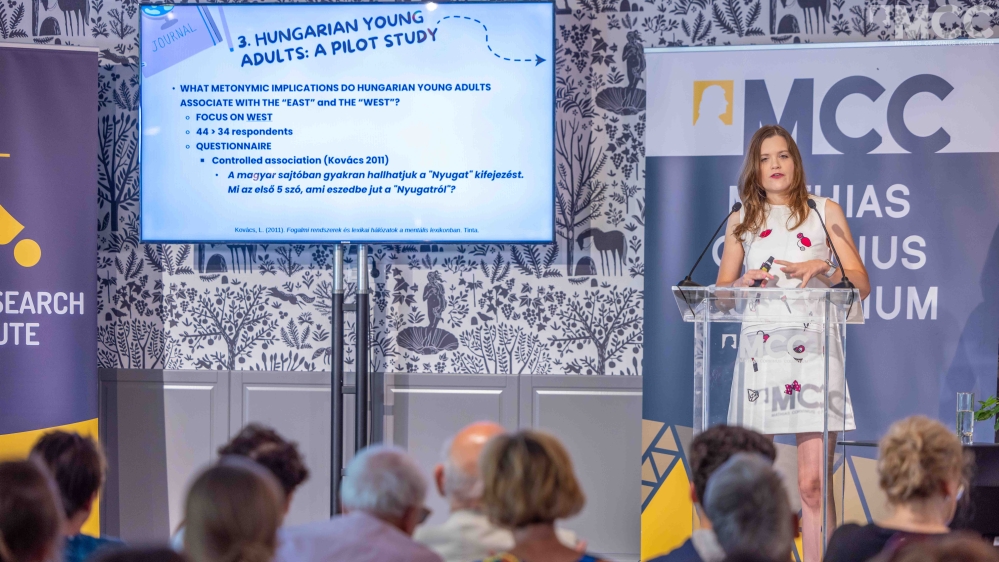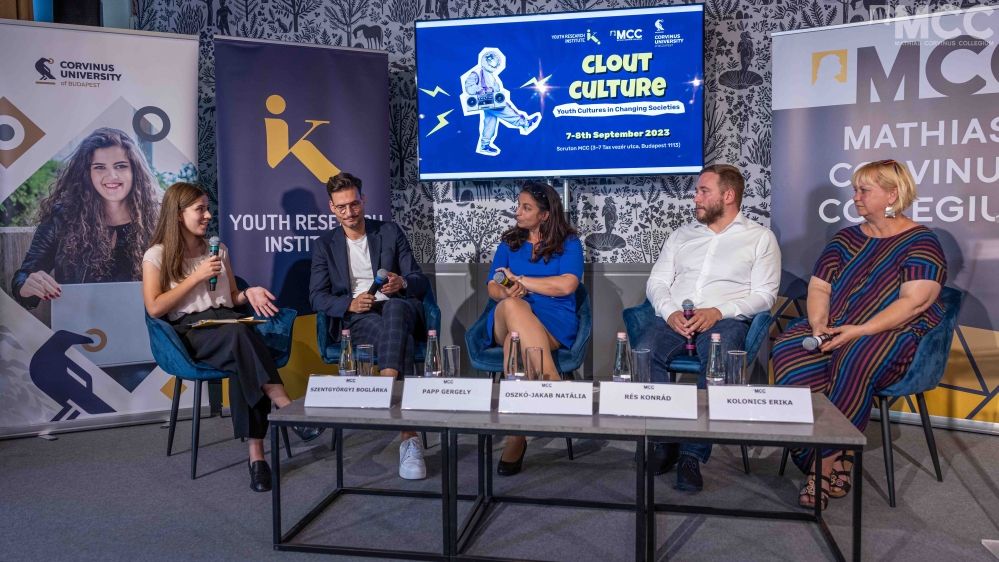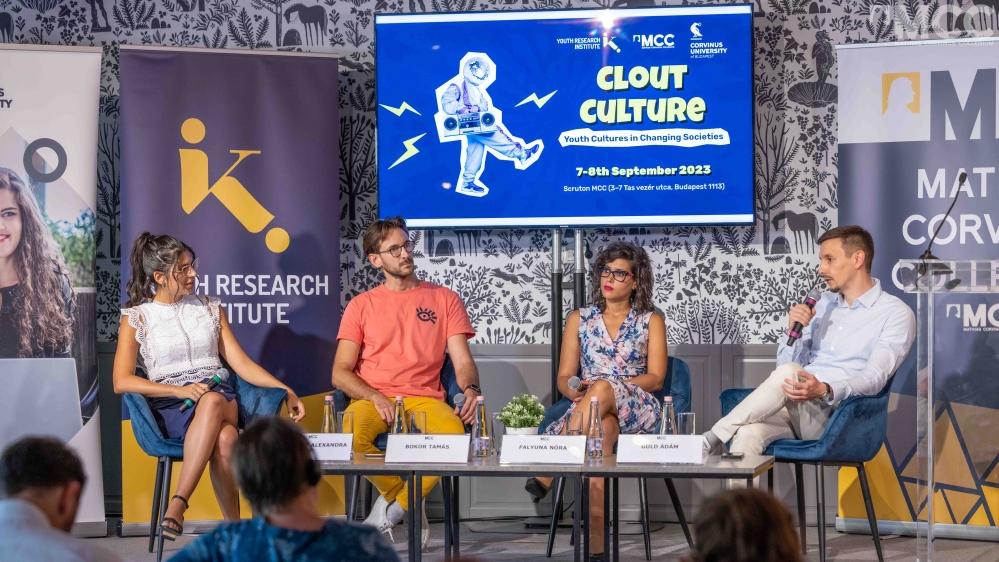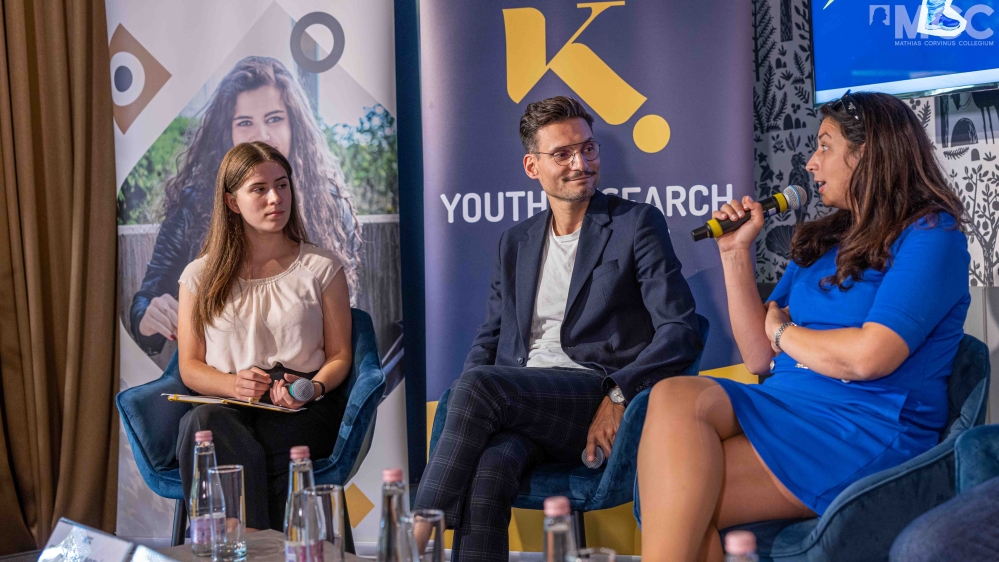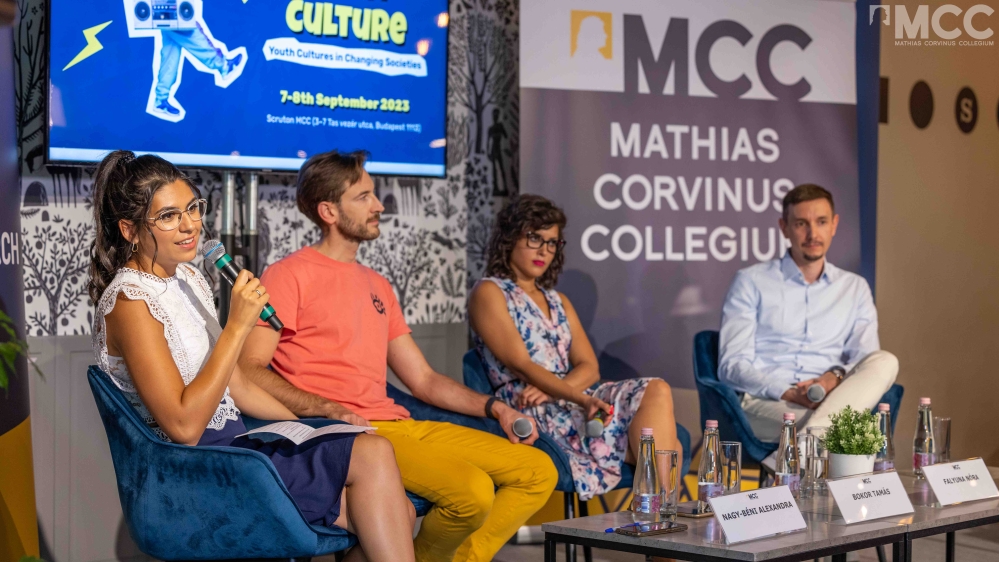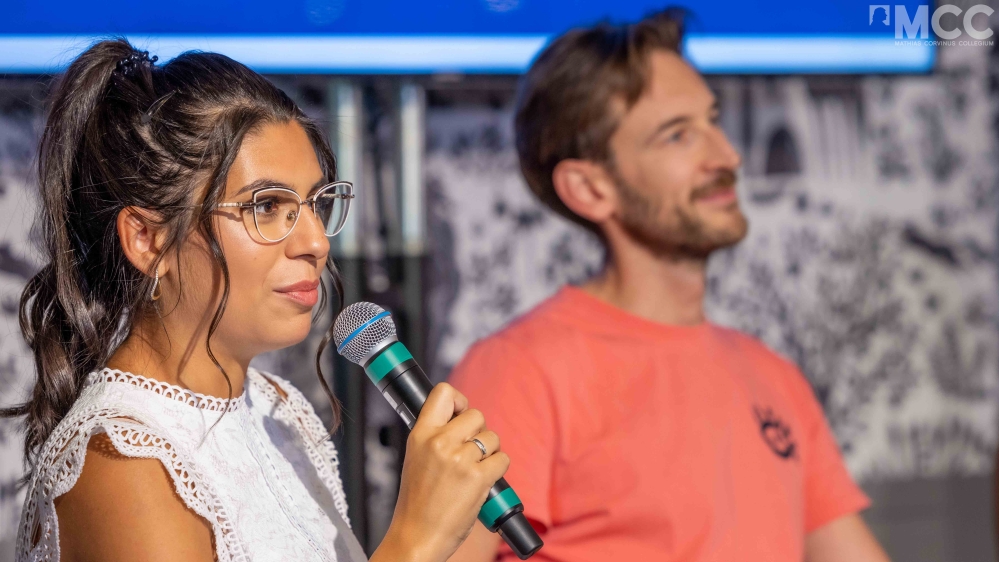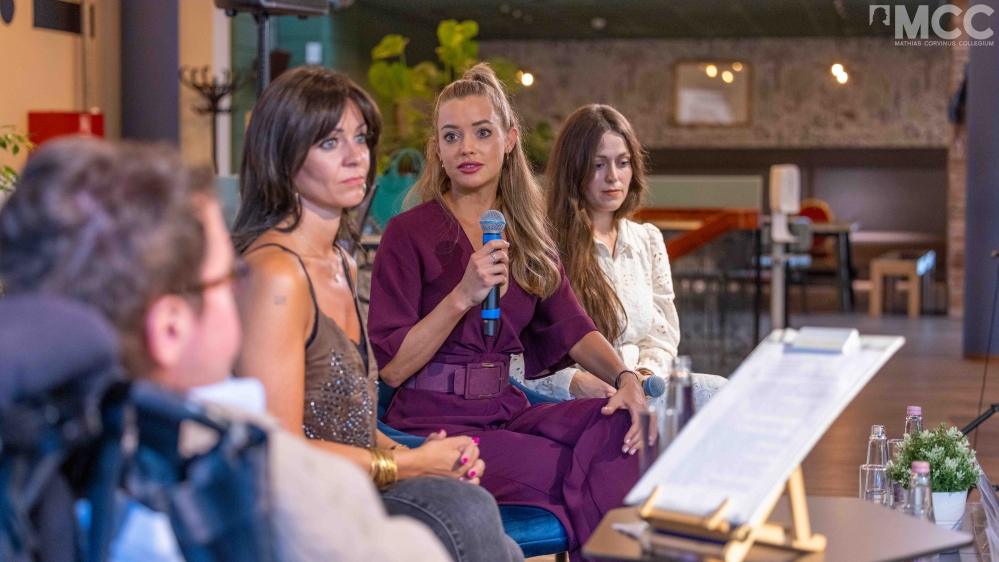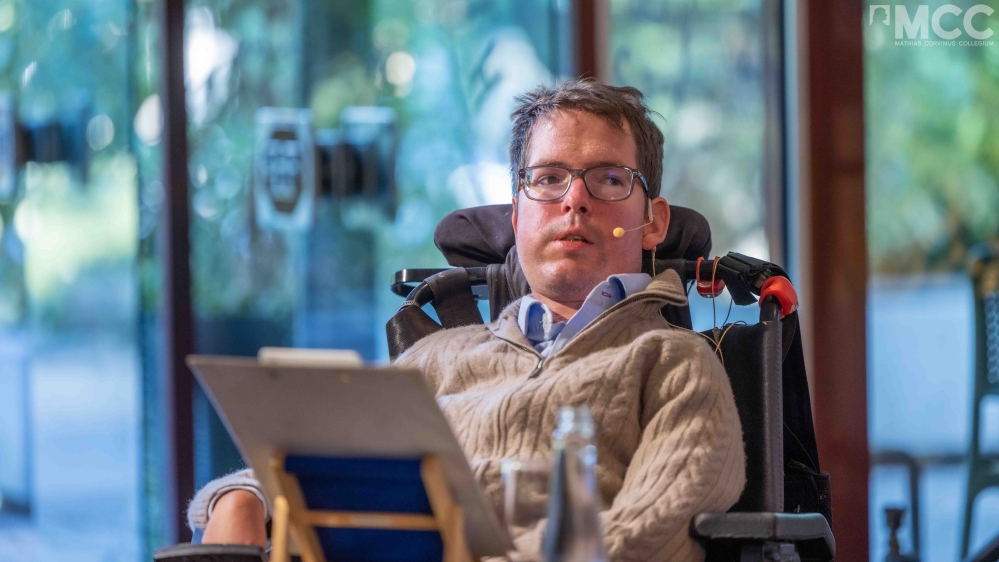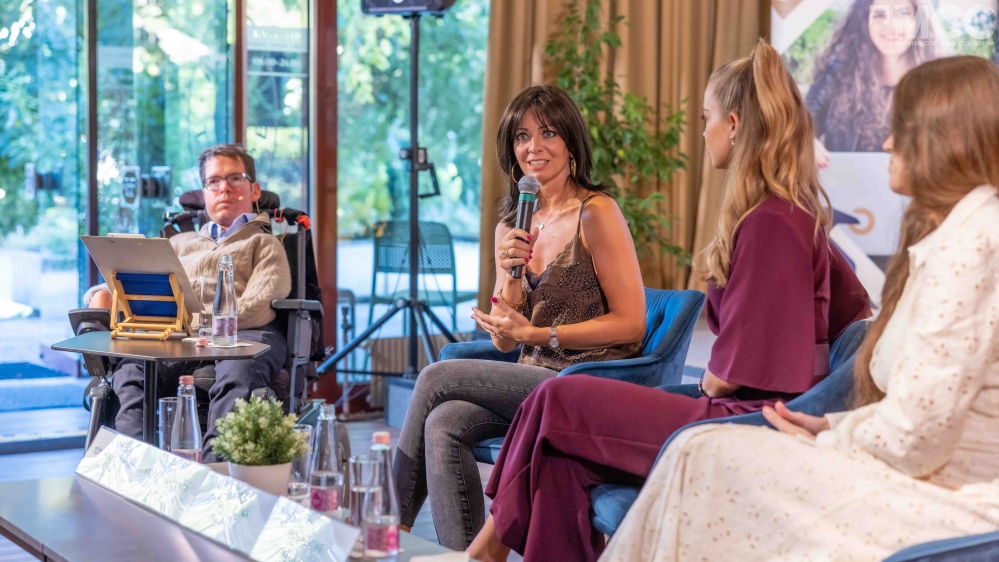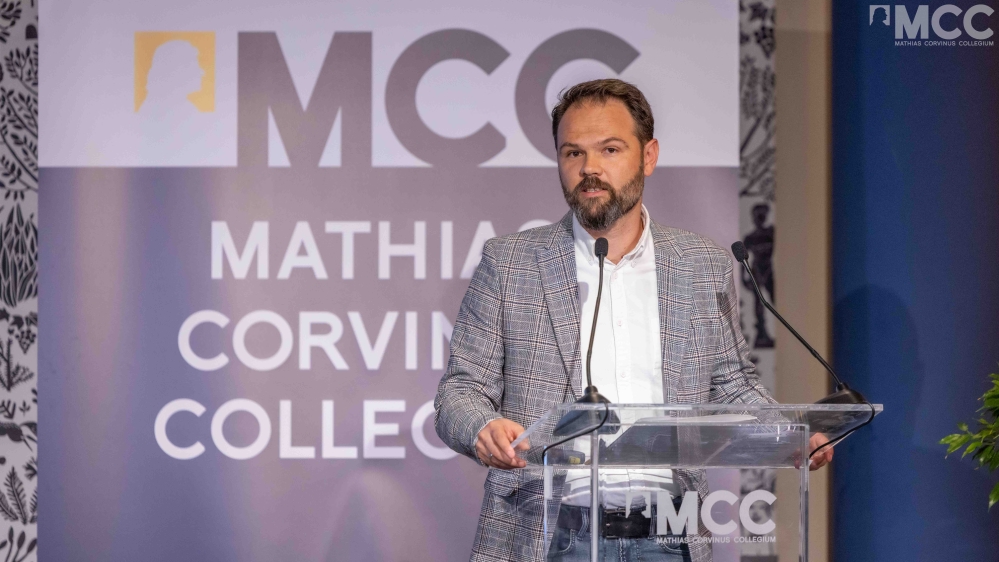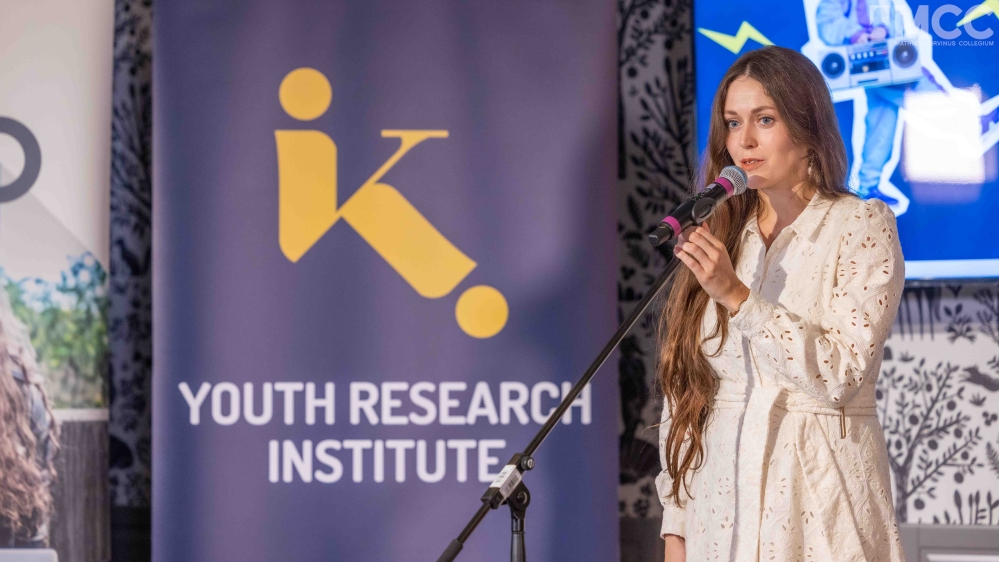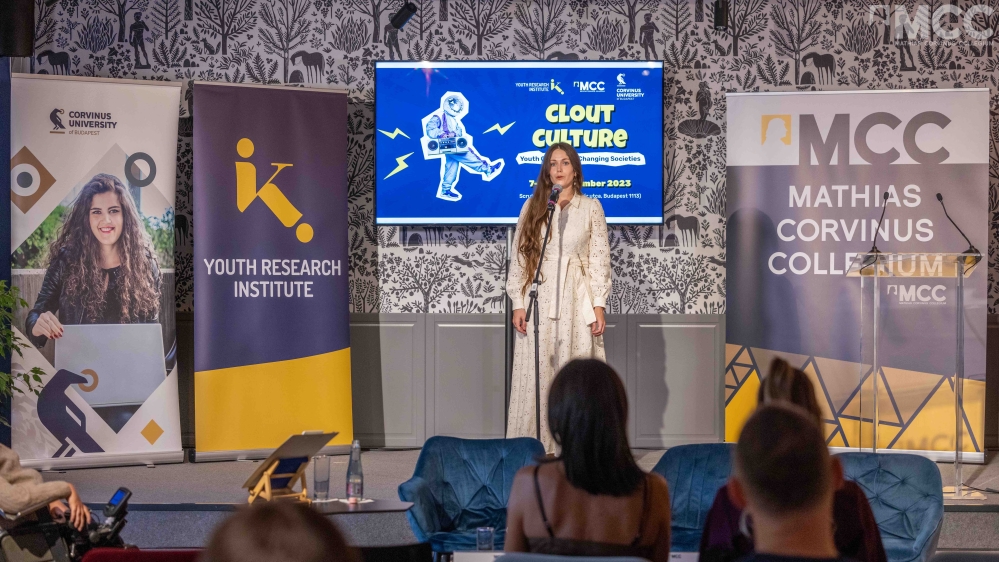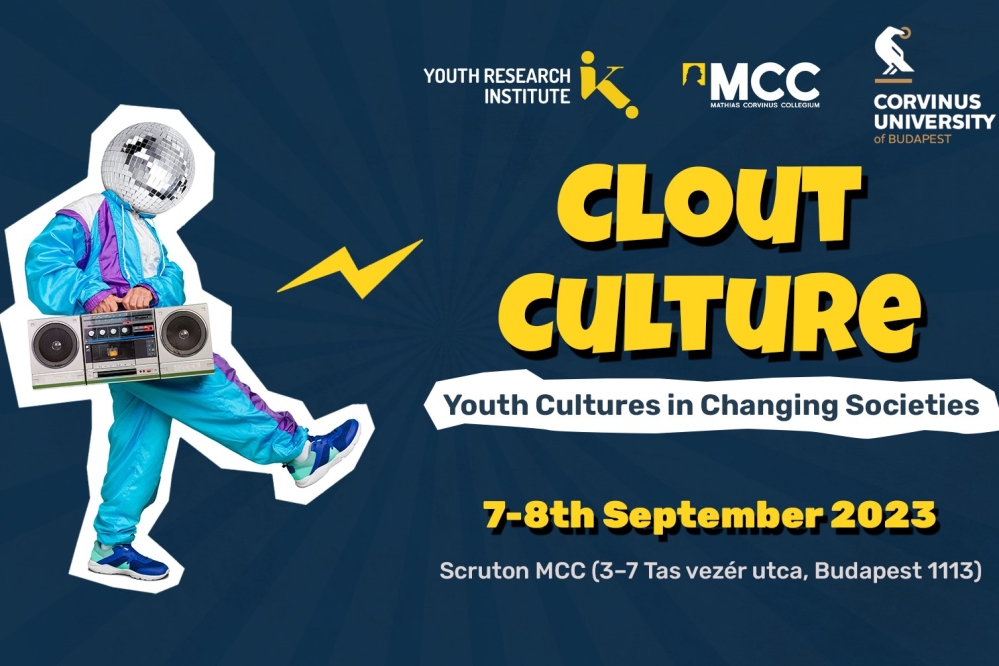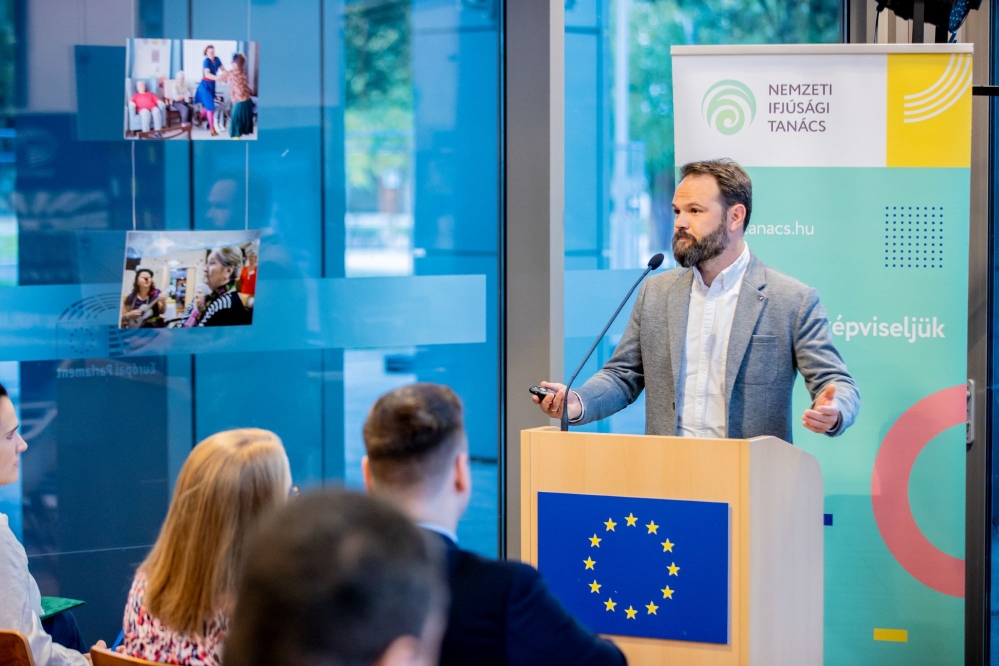The conference "Clout Culture: Youth Cultures in Changing Societies", organized by the Youth Research Institute and Corvinus University of Budapest, took place MCC Scruton on 7-8 September and attracted a larger-than-expected audience
In his welcome address, Tamás Gyulavári, Head of Corvinus University’s Institute of Marketing and Communication Sciences, highlighted the forward-looking focus of the conference, praised the young professionals' achievements and encouraged them to take bold initiatives.
In the opening discussion of the conference, Gergely Böszörményi-Nagy, head of Design Terminal, founder of Brain Bar, answered posed by Enikő Szakos, founder of the Book Salon, both as a reader and as a writer. Regarding his book NONKONFORM, he said that for him writing it is an expression of his opposition to mainstream ideas, but for authors, writing a book is always a kind of rebellion, as they are always speaking out against some existing imperfection. In the course of the discussion, Böszörményi-Nagy warned that one should not draw conclusions about humanity as a whole from Hungarian trends such as the increase in the number of people visiting libraries and the number of books sold, as this only suggests that there is still a fortunate demand for analogue books in Hungary. He also spoke about the differences between using digital and print books, and clearly recommends analogue reading to develop our brains and problem-solving skills.
In the second panel discussion of the afternoon, participants discussed the generation and social divide in cultural consumption, the impact of the coronavirus epidemic and the bridging role of different cultures, moderated by Ferenc Sullivan, researcher at the Youth Research Institute.
Réka Benczes, professor and head of the Department of Communication and Media Sciences at Corvinus University of Budapest, drew attention to the interrelations between cultural studies and related disciplines such as linguistics, communication studies, anthropology, sociology and psychology. She stressed that, since we construct the reality around us through language, it is important to be open and proactive in our communication about culture, while being sensitive to the specificities of the culture.
Alexandra Solea, cultural manager and lecturer at the Rome Business School and the National University of Music in Bucharest, stressed that culture and education cannot be an end in itself, but can often be a stimulus for social advancement, and that it is therefore key to make it accessible to all, from school age to old age. This requires finding a balance between conservative values and innovative, open communication techniques.
Zsuzsanna Szálka, Deputy Director for Professional Coordination of the Hungarian House of Music, said that the institution is particularly keen to ensure that its repertoire represents a wide range of cultures and genres. The same is true for the different forms of musical events, as in addition to traditional concerts, there are online performances, concert discussions, open-air concerts and matinees. She added that while it is indeed difficult to reach younger people, especially secondary school students, classical music has always mostly attracted people over the age of fifty.
Panelists agreed that the forced digitalization caused by the coronavirus pandemic has opened up new horizons for culture, but that online channels will never be able to fully replace face-to-face contact and the experience of physical presence.
Following the moderated panels, the invited PhD students presented their research in an informal format to the interested audience. The students came from universities in Hungary, Italy, Slovakia and Austria.
The backbone of the second day of the conference was formed by the presentations of invited guests from Hungary and abroad, as well as expert panel discussions. These were organized around the relationship between young people and the arts and online media, communication, media generations and festival culture, online content consumption and production, and the future role of culture. Youth Research Institute researcher Georgina Kiss-Kozma analyzed the relationship between youth and classical music based on the findings of the Institute’s recent survey. The data presented in her lecture shows that while seven in ten young people say that classical music is either fully or easily accessible to them, the absolute majority (56 percent) never listen to classical music.
After opening remarks delivered by Zoltán Szalai, Director-General of MCC a lecture on the culture of online celebrities and the power and dark side of social media was delivered by Anna Brosch, associate professor at the University of Silesia in Katowice. Jennie Bristow, senior lecture at Canterbury Christ Church University, spoke about the characteristics of Gen Z, identity politics and the dimensions of generational belonging, while Professor Andrea Kárpáti of Corvinus University spoke about youth subcultures.
PhD students, lecturer at Corvinus University of Budapest and Nóra Barnucz, assistant professor at the National University of Public Service, gave a presentation on visual techniques for training young police officers, while Indian communications experts Swikrita Dowerah and Madhusmita Boruah delivered a lecture on the power of political memes in shaping election outcomes. Maroja Vorkule, lecturer at the University of Latvia in Riga, spoke about the responsibility of social media influencers in the context of the Russia-Ukraine war. Amna Zulfiqar and Faiza Khalid, both of the National University of Modern Languages in Pakistan, spoke about Islamophobia in political discourse and Italian researcher Lorenzo Bernasconi of the Machiavelli Center discussed the dangers posed by the Americanization of mass culture.
Péter Pillók, Director of the Századvég Foundation’s Social Science Research Group, examined the values and resilience of young people. MCC research fellow Zoltán Veczán looked at the stereotypes that generations have of one another on relation to social media activity. Levente Székely, Director of the Youth Research Institute, presented the findings of the Institute’s research on summer festivals, which covered three events – MCC Fest, Campus Festival and Strand Festival. The presentation revealed, among other things, that the vast majority of visitors are planning to attend the festival again next year. Júlia Szabó, lecturer at Babeş-Bolyai University in Cluj-Napoca, spoke of the history and findings of festival research waves in Transylvania.
Lectures were followed by three roundtable discussions. The first panel discussion focused on festivals from the organizers' perspective, with the participation of the main organizers of MCC Fest, Vibe Festival, Valley of Arts and Szeged Youth Days. Afterwards, university lecturers Tamás Bokor, Nóra Falyuna and Ádám Guld, discussed contemporary trends in content production and consumption. Finally, Anna Juhász, cultural manager, Rebeka Méry, folk singer, and Barbara Somossy, broadcaster and television producer, reflected on the future role of culture. As the conference came to a close, Rebeka Méry performed a folk song from the Zoboralja region.

